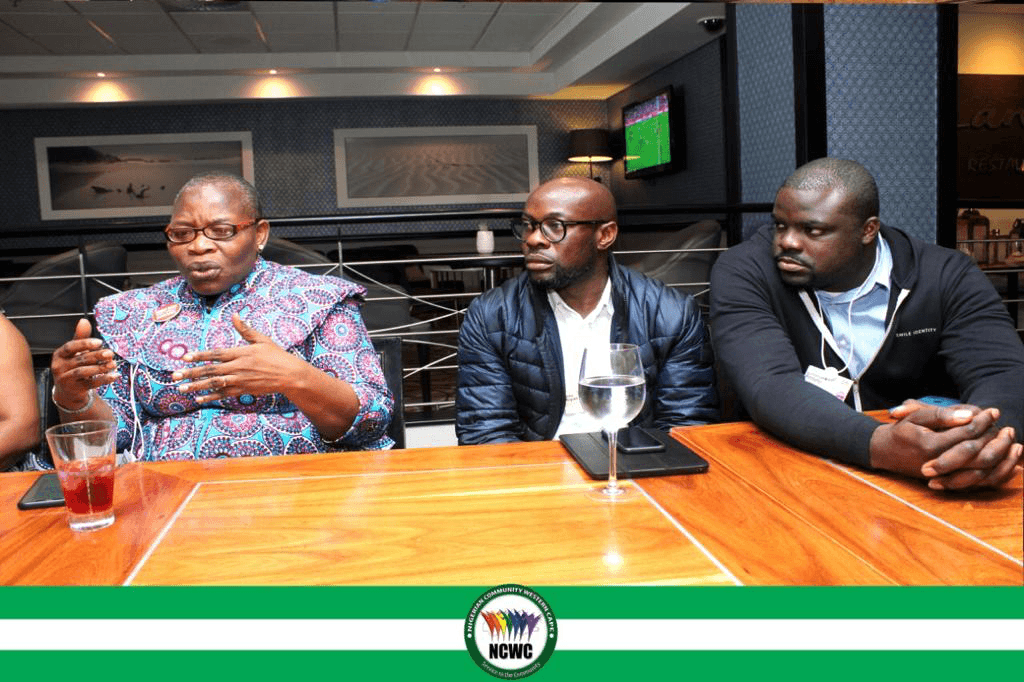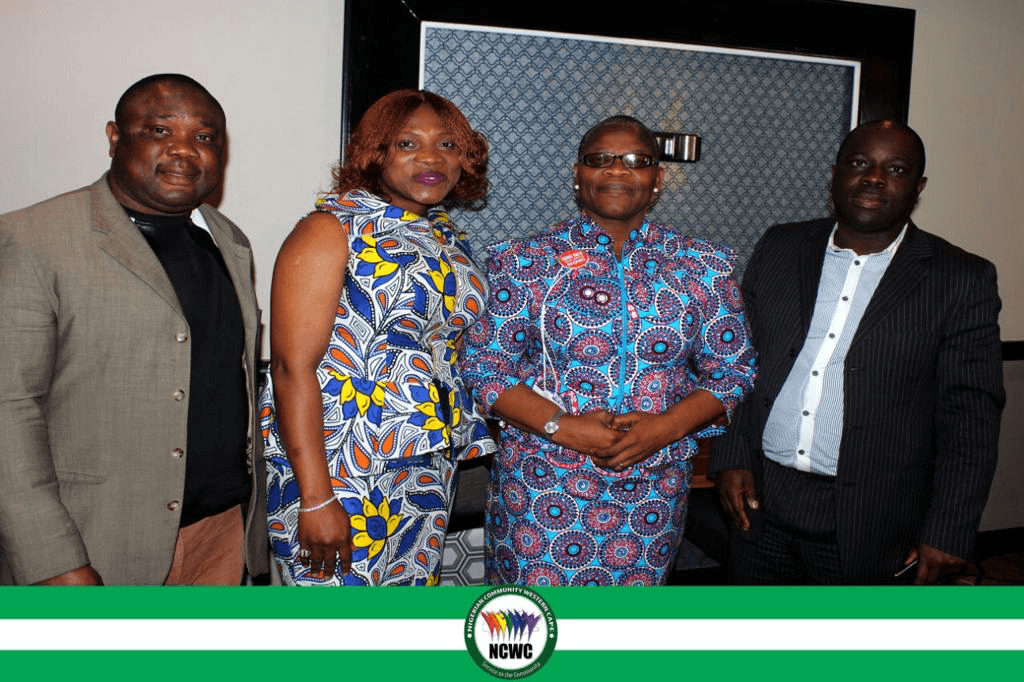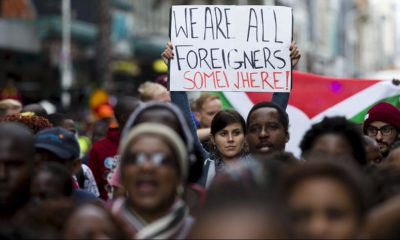- Xenophobia: Ezekwesili, Nigerians in S’Africa Meet, ask Ramphosa to Apologise
A former presidential candidate in Nigeria, Obiageli ‘Oby’ Ezekwesili, and leaders of the Nigerian community in Cape Town have met to proffer a solution to recurring xenophobic attacks in South Africa.
The meeting held on the sidelines of the World Economic Forum (WEF) in Cape Town, South Africa, comprising Nigerian entrepreneurs, professionals and the Nigerian community led by Mr Cosmos Echie, the acting President of the Nigerian Community Western Cape.
In a communique after the meeting, held in the form of an interactive session, the group preferred to describe the attacks as Afrophobia.
“It was unanimously agreed that the crisis is detrimental to the spirit of African renaissance, affirmation of black heritage, progress and development. Afrophobia compromises everything that the recently brokered intra-African trade – Africa Continental Free Trade Agreement — represents and aspires to deliver,” the communique added while faulting the attacks.
 According to a copy of the communique made available to our correspondent on Monday, governments of Nigeria and South Africa are urged to guide against provocative comments.
According to a copy of the communique made available to our correspondent on Monday, governments of Nigeria and South Africa are urged to guide against provocative comments.
The South Africa’s President, Matamela Cyril Ramaphosa, was also asked to apologise to Nigerians and other countries whose citizens were attacked.
The South African government was also advised to trigger series of actions necessary to de-escalate the brewing conflict.
This, the experts said, would ensure that bilateral trade agreements between the countries would not be affected.
Part of the communique read, “Officials of the government of South Africa must immediately desist from making any further pejorative and incendiary comments targeting Nigerians and their country and instead publicly commit to taking preventive and surveillance measures that will foreclose a repeat of Afrophobic attacks of Nigerians and other African nationals.
“The President of South Africa, Cyril Remaphosa, should rise to the demands of leadership and reach out to the President of Nigeria to trigger the series of dialogue and actions necessary for swift de-escalation of the brewing conflict between their two countries.
“The President of South Africa should offer a sincere public apology to Nigeria, other countries affected by the attacks and the entire continent for the tragic hostility and harm perpetrated against their citizens.
“The President of South Africa should send a sharp signal to South Africans and the continent by visiting the victims of the Afrophobia attacks to empathize with and reassure them of their safety in South Africa and the government should consider paying compensations for losses sustained in the attacks.
“South Africa and Nigeria should agree a mutual legal assistance cooperation scheme for tackling cases of crimes occurring among their citizens.”
It also read, “The Nigerian High Commission and Nigerians in South Africa should design a fact-based campaign to widely convey the accurate and positive narrative of the value they contribute to their host country. For example, South Africans must be made aware that more than 18 per cent of lecturers in their higher institutions are Nigerians. A significant percentage of the medical personnel in rural hospitals are Nigerians. Most Nigerians and Nigerian-owned businesses operate responsibly in legitimate and professional practices in South Africa compared to the less than one per cent of cases of shadowy activities.
“The Nigerian government should make visible effort to guarantee the safety and security of South Africans and their businesses in Nigeria.
“The umbrella organisation of South Africa- based Nigerians will be encouraged to launch a business platform to support the formalising processes for as many informal businesses of Nigerians as possible in order to better capture the value and impact being created and contributed to South Africa’s economic and social landscape.”
 The communique added, “Ezekwesili promised her expertise in personally working with the NCWC to ensure that their goal to help achieve the formalising platform.
The communique added, “Ezekwesili promised her expertise in personally working with the NCWC to ensure that their goal to help achieve the formalising platform.
“The leaders of South Africa-based Nigerians will collaborate to promote a citizens diplomacy programme to foster stronger personal and business relationships between Nigerians and South Africans.”
Other members of the delegation that met with the former minister are Mr Fuster Ludjoe, current financial Secretary of NCWC and the founding leader of Nigerian community group in Cape Town; Mrs Ebiere Joseph-Akwunwa, Public Relations Officer, NCWC; Mr Chukwudi Nwokeabia; Mr Kiisi Women; Mr Samson Famuyiwa; Mr Sunday Ekene, Chief Welfare Officer, NCWC; and assistant welfare officers of NCWC.
Others are Mrs Felicia Feni, Treasurer of NCWC; Chief T.A Odutayo, who represented the Yoruba community in Cape Town; Chief Vincent Nzekwe; Mr Simon Odumegwu, Chairman and General Secretary of Ohaneze Ndi Igbo, Western Cape; and Pastor Barry Wuganaale, leader of the Ogoni community.


 Forex3 weeks ago
Forex3 weeks ago


 Naira2 weeks ago
Naira2 weeks ago
 Billionaire Watch2 weeks ago
Billionaire Watch2 weeks ago






 Naira3 weeks ago
Naira3 weeks ago






 Naira2 weeks ago
Naira2 weeks ago


 Naira1 week ago
Naira1 week ago




 Naira4 weeks ago
Naira4 weeks ago






 Naira1 week ago
Naira1 week ago

















